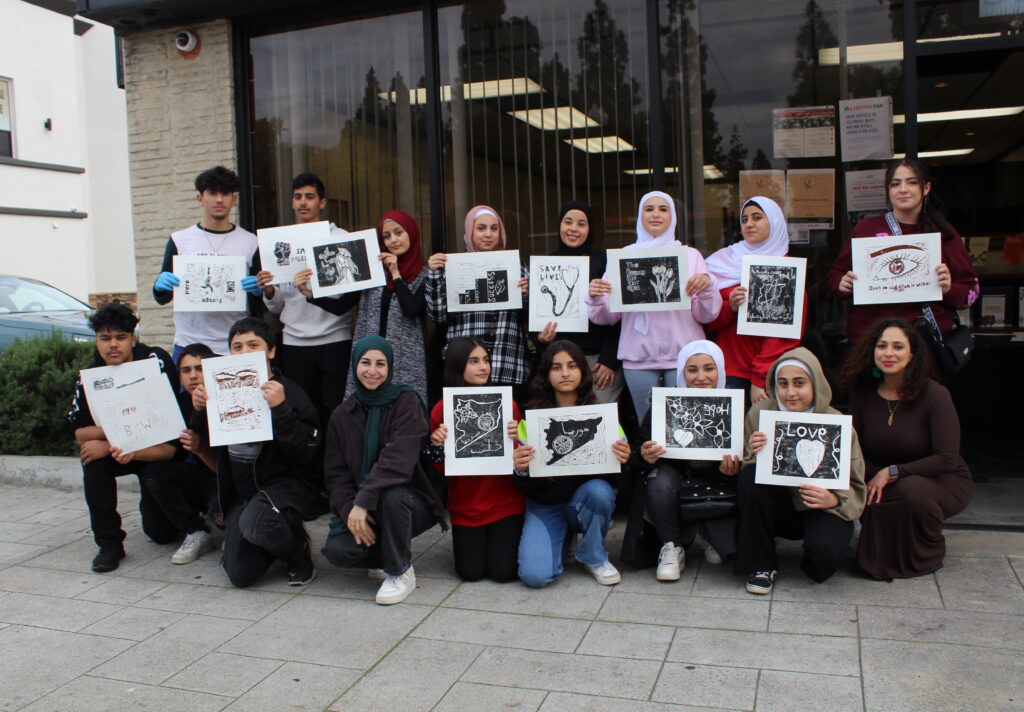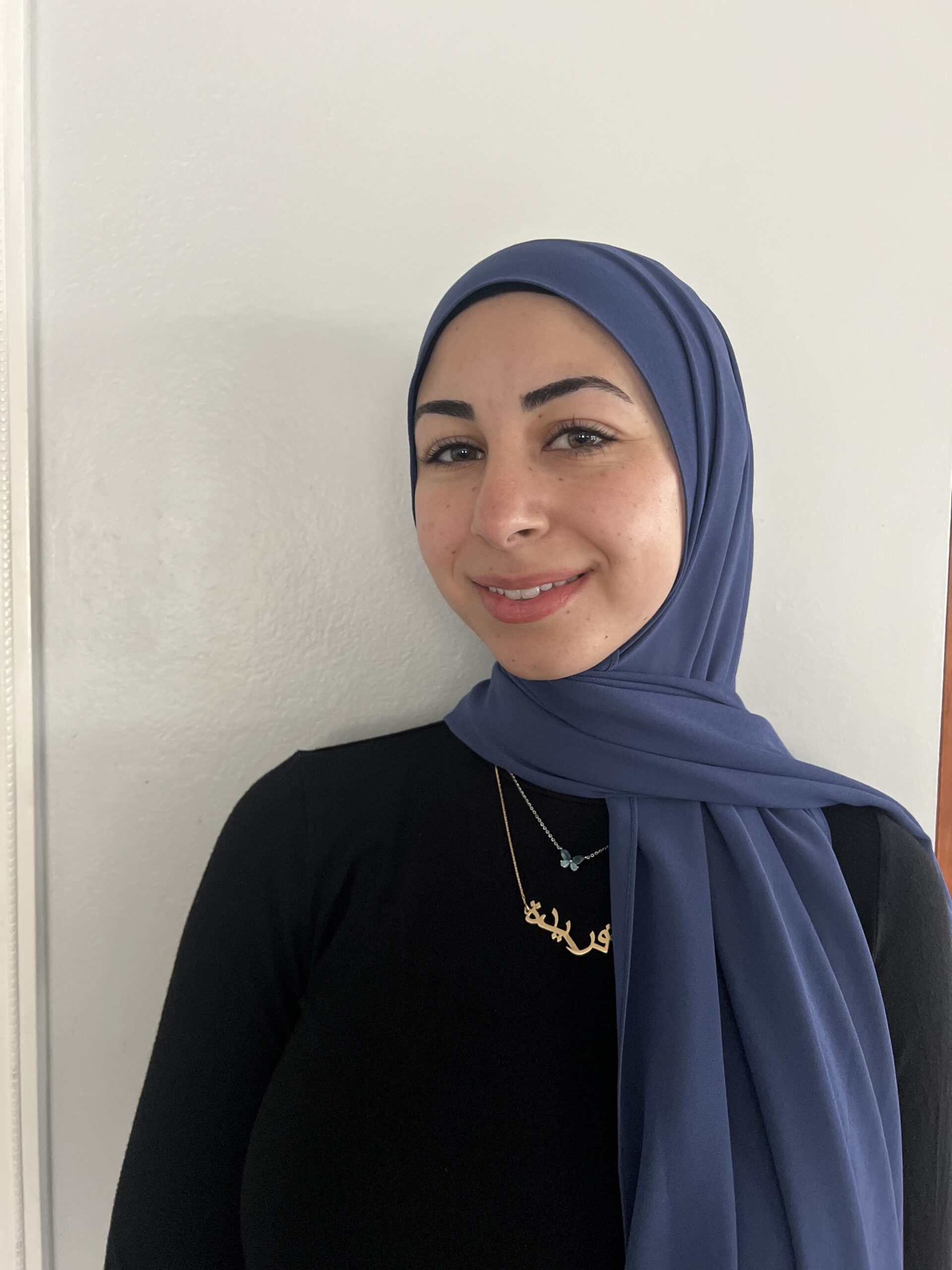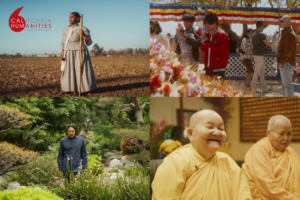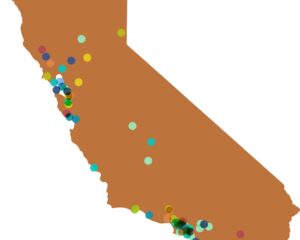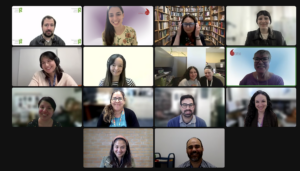Above: The Majdal Center hosted a successful printmaking workshop with artist Lorain Rihan in February 2024.
In celebration of Arab American Heritage Month, we are spotlighting Homeland and Homemaking: Arab Youth Tell Their Stories, a fall 2023 Humanities for All Project Grant recipient spearheaded by the Majdal Center in San Diego County, California. This project compliments the Center’s efforts to help Arab refugee and new immigrant youth members thrive; through a series of mixed media workshops over the course of two years, youth participants are being given the opportunity to reflect on their lives and develop their own narratives relating to themes of displacement, migration, resettlement, and diaspora. The work produced will form the basis for a fall 2024 exhibit at the El Cajon Library.
Farida Erikat, a Youth Programs Manager, leads this effort. Farida grew up in a large Palestinian-Muslim family and was born and raised in San Diego (unceded Kumeyaay land). She graduated from UC Irvine where she studied Psychology and Education, with a special interest in working with youth populations. Through her work at the Majdal Center, Farida seeks to help the youth successfully navigate identity exploration and development and reclaim their role as active leaders of the next generation.
First, can you tell our readers a bit about the community where you work, El Cajon, and the role the Majdal Center plays in it?
Since the 1990s, El Cajon, fondly known as “Little Baghdad” by locals, has been a hub for the Arab community in San Diego. With one of the largest rates of refugee and immigrant resettlement, El Cajon is home to a large population of newcomers, predominantly originating from Iraq, Syria, and most recently, Afghanistan. This fusion of cultures is no more apparent than on Main Street in Downtown, where passersby see locally-owned businesses with signage in English, Arabic, and Dari/Pashto side-by-side.
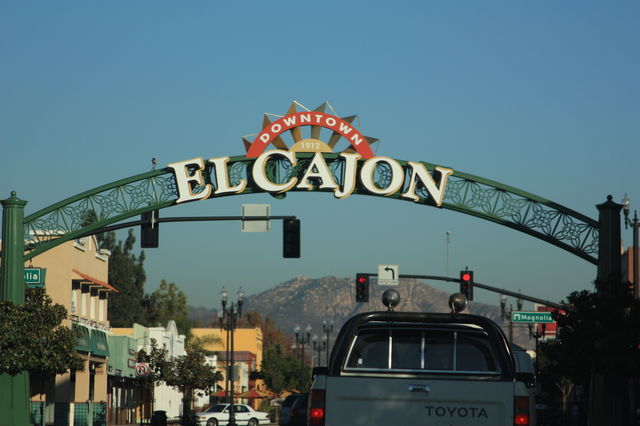
The vibrant history and status of the city as a hub for immigration and resettlement is exactly why the first efforts of the Majdal Center emerged in El Cajon back in 2016. Eight years after our opening, the Majdal: Arab Community Center of San Diego now serves as a bustling organization that seeks to support the Arab community, including newcomers, in navigation of local institutions and acclimation to life in the US and San Diego County. Through our four main areas of work and an organizational philosophy that intersects needs-responsiveness with programs and advocacy, we aim to improve the material conditions of our community and affirm their right to self-determination, in pursuit of building a just and dignified future.
As a community-led institution, we see the El Cajon context as critical to the work we do to stay rooted in the values, environment, and context of our community. Far from our familial lands across different waves of immigration, in some ways, this corner of the world we’ve built reminds us of home.
What inspired your project, Homeland and Homemaking…and what you are hoping to accomplish through it?
From the earliest iteration of the Majdal Center in 2016, there was a recognition of the importance of arts programming in the cultivation of free expression in our youth. Like with all cultures, the arts and humanities are an integral part of the formation of Arab traditions and practices, and generative in the conceptualization of identity. The Arab community’s history in the US is one of migration, often involuntarily due to occupation, wars, and civil unrest. For the “1.5” and 2nd generations of youth immigrants, the need for self-expression and identity development is particularly crucial. Often burdened with additional familial responsibilities and forced to navigate a post-9/11 political climate pervaded by Islamophobia and anti-Arab racism, our youth are expected to survive and succeed, making good on the sacrifices their families made to get here.
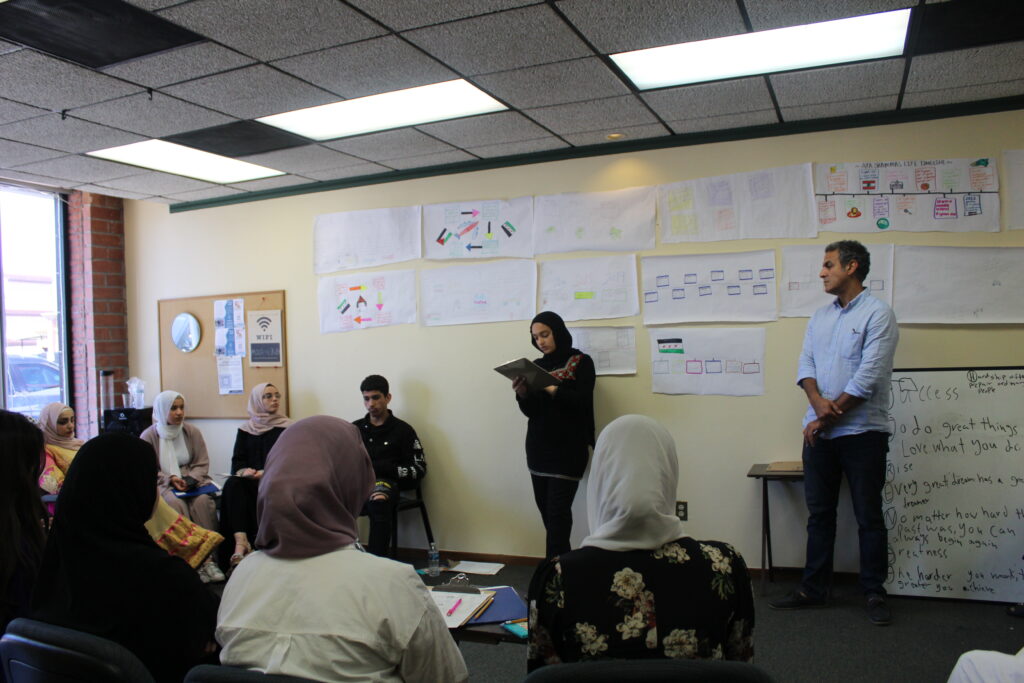
Balancing two cultures, they toe the line between assimilation and isolation, aiming desperately not to lose themselves in the mix. It’s exactly this intergenerational story of migration, and the resilience that comes with it, that we hoped to tell through our project Homeland and Homemaking. As a community that faces a paradox of hyper-surveillance and underrepresentation, we aimed to shift the existing narratives of misinformation and ignorance through the voices of the next generation. By creating positive spaces for our youth to reconnect with their cultures and tell their stories, we hope to build a community narrative where we are centered rather than sidelined. Stepping into our role as the rightful experts of our histories, we aim to reclaim our agency and define our own futures. We are more than our statuses as refugees, asylum-seekers, and immigrants; we are powerful, and it’s time for us to tell our story.
You have been working on the project for over a year. What has transpired so far and what’s still to come?
One year in, this project has greatly surpassed the projections and dreams we had of it in our initial conceptualization. Fueled by passion, hope, and potential, Homeland & Homemaking’ has blossomed into an expansive, multi-faceted series of workshops, programming, and art mediums for our youth to explore and thrive in. In the past year we’ve held multi-day workshops on storytelling, filmmaking, Dabkeh (traditional folk dance), theater, and printmaking led by community experts in each field. Through these workshops, we’ve engaged over 60 youth ages 12-22 from all sects of the community, created a Film Club, and performed in Little Amal’s National Tour in Chicano Park. Over the course of nine months, we’ve seen the increasing eagerness of our youth to engage and learn as they build new friendships and journey through self-discovery.
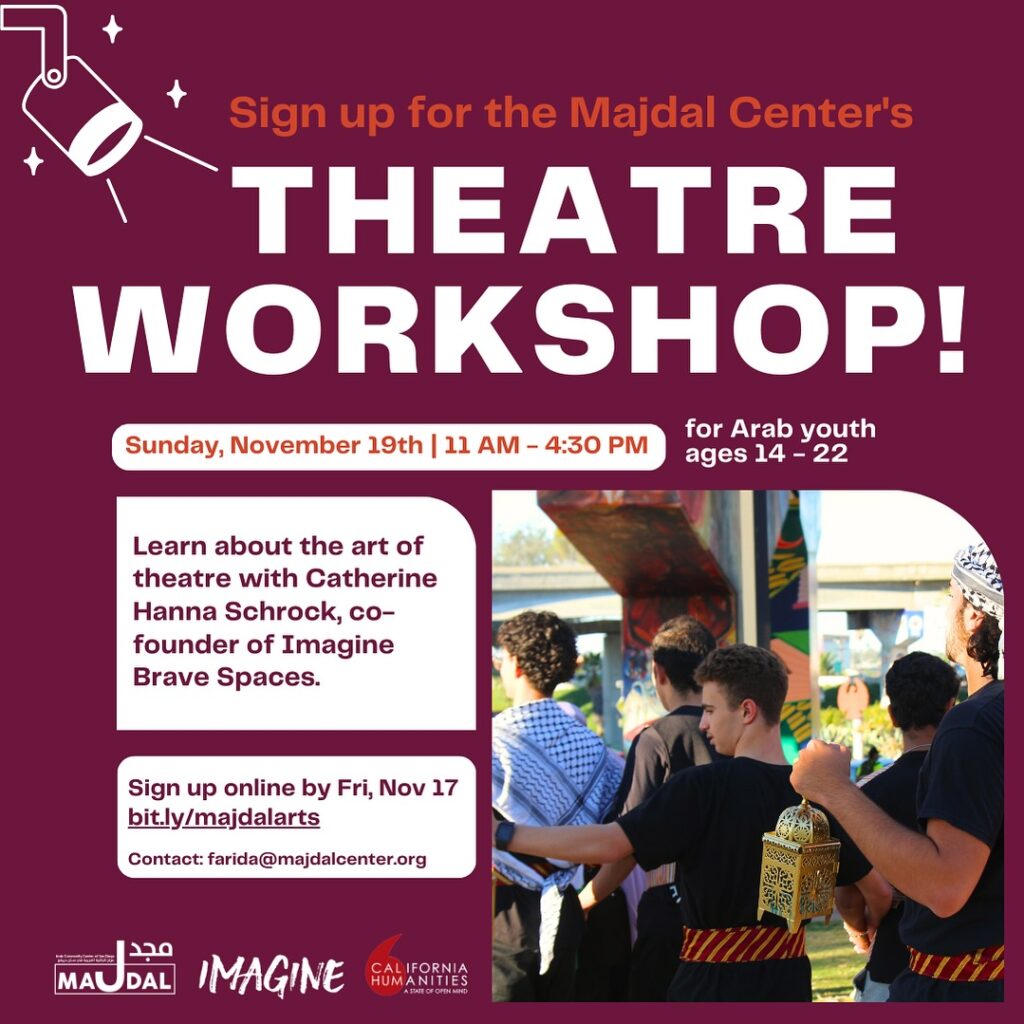
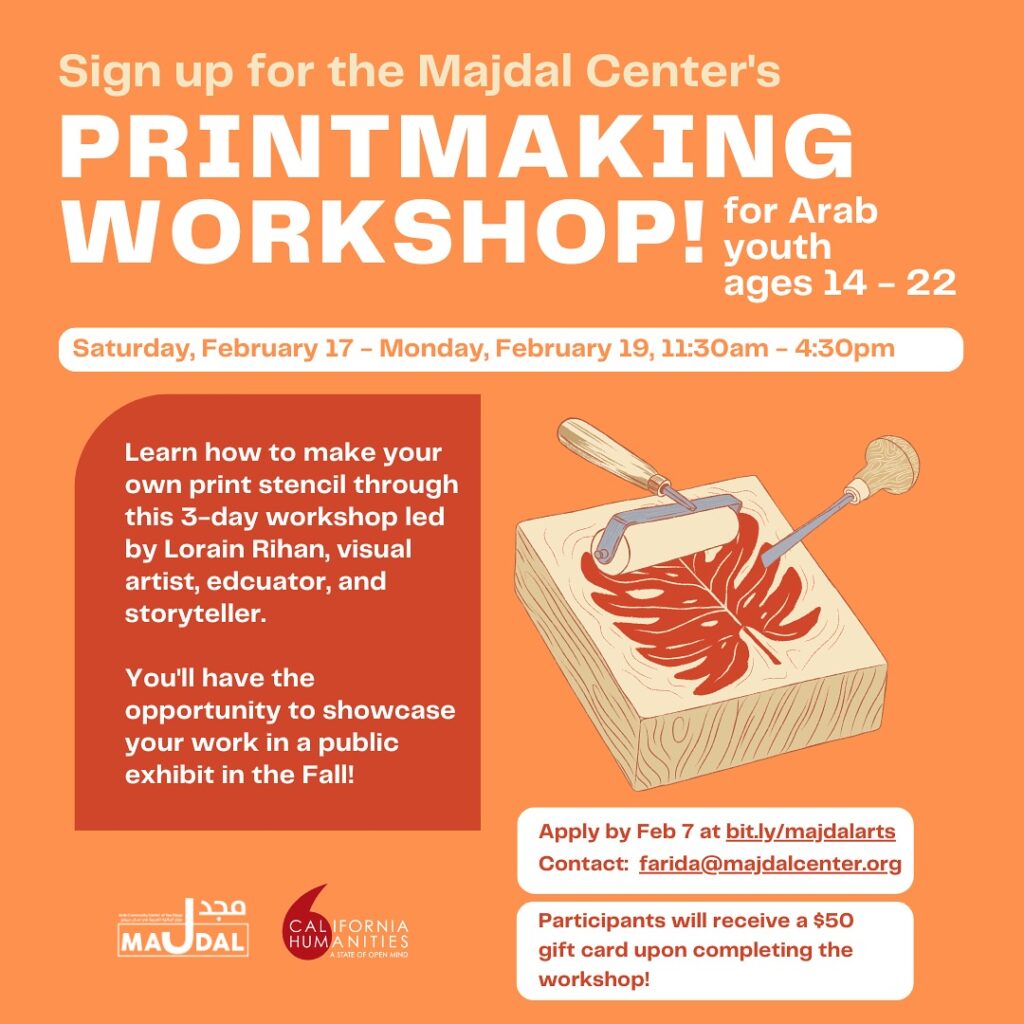
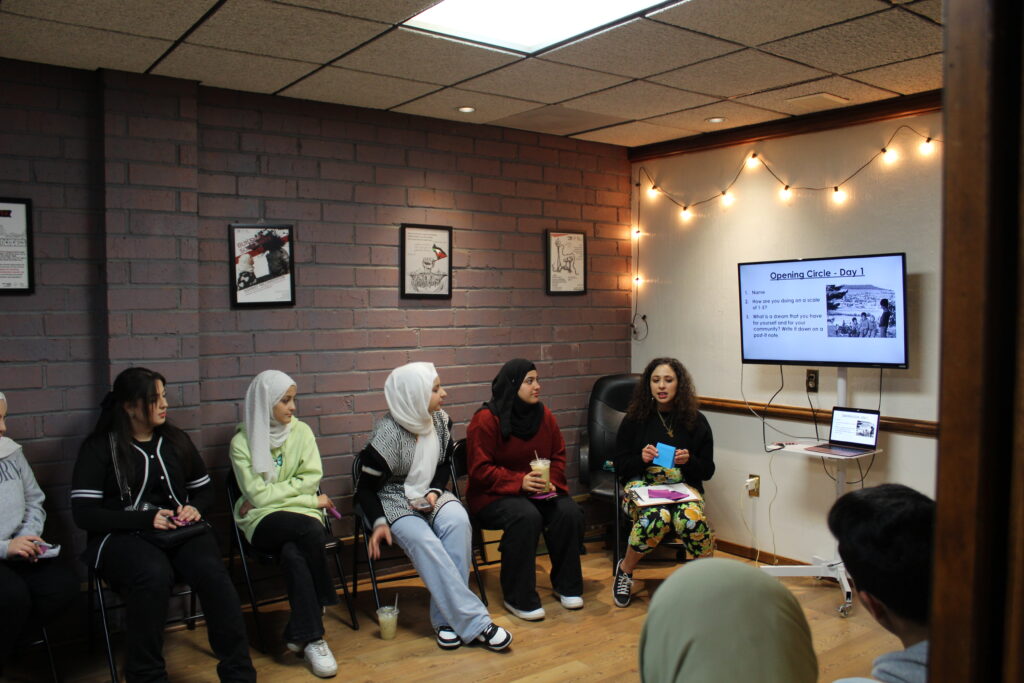
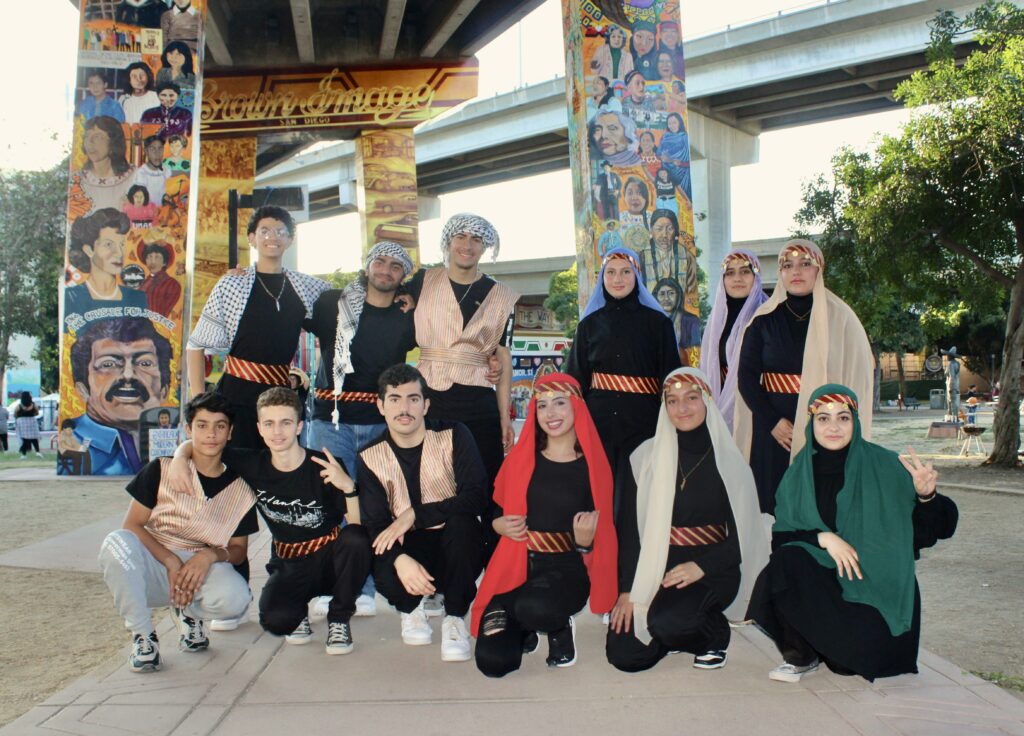
In development for the coming months are programs related to poetry, a community mural, and the production of a professional short film by our youth, culminating in a public arts exhibit hosted at the El Cajon Branch Library in fall of 2024. As we make more headway with the project, we continue to see new avenues for collaboration with community partners and organizations, opening up opportunities that didn’t previously exist. Beyond what we have planned right now, we are excited to see what the future holds.
“Fueled by passion, hope, and potential, Homeland & Homemaking’ has blossomed into an expansive, multi-faceted series of workshops, programming, and art mediums for our youth to explore and thrive in.”
Farida Erikat
Do you have plans to extend the project or to share the work you’ve done with others?
Something we didn’t expect when taking on this project was how many doors would open to continue running arts and humanities programming through our center. Through community response, we’ve seen clearly the need and desire to continue providing creative outlets for youth of all ages to explore and express themselves. Since our first workshop in June of 2023, we’ve connected with many new partners who are committed to sustaining this work beyond the lifespan of the project. An entire new world has opened up for us and we are actively pursuing more opportunities to ride on the momentum we’ve built thus far.
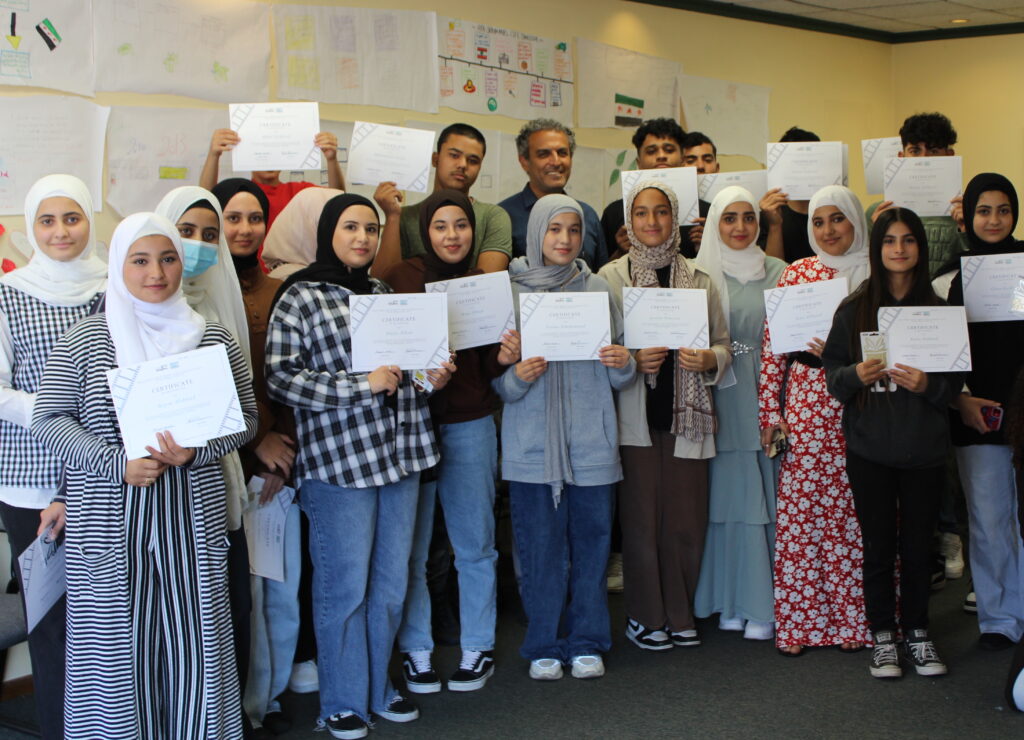
Our focus right now is the curation of the arts exhibit we have slated for October-December of this year. Through this exhibit, we seek to weave together art from youth ages 12-24 across a variety of mediums, exploring themes of home, migration, storytelling, and identity. We plan to host an opening night of programming and capstone events featuring keynote speakers and youth performances, inviting partners from all over San Diego County. After the conclusion of the in-person exhibit, we hope to house the production on a website so that this work can live on and reach even wider audiences across the country.
What is your vision for the future of California? What role can projects like yours play in helping to make that reality?
As a center that arose out of a community-led response to support the flux of incoming Syrians resettling in a city ill-equipped to meet their needs, we envision a future of justice and equity for our people and all peoples. We envision a future where all people can live unrestricted by occupation, displacement, and siege, pursuing life and liberty. We envision a future where our community sees the power we hold, and the ability we have to build a better world.
It is our hope that our humble project, one youth at a time, is a step towards building a generation of leaders that can realize our collective dreams of justice and liberation.
Visit the Majdal Center’s website.

